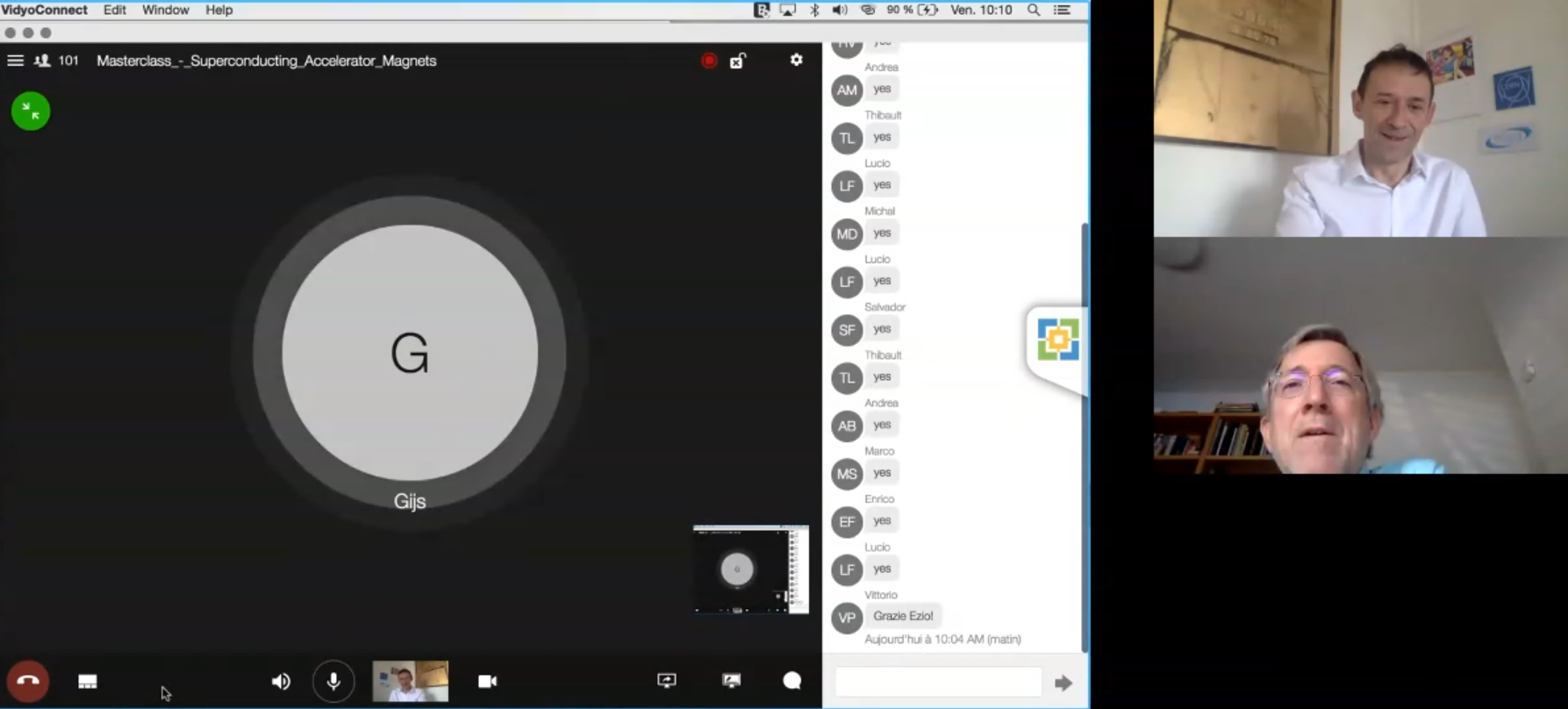From May to October last year, the CERN MSC group (magnet, superconductors and cryostats) organised a masterclass on the design of superconducting magnets for particle colliders. Facing the challenges of the first wave of the pandemic in Spring 2020, Luca Bottura, who was leading the MSC group at the time, asked Ezio Todesco to organize a series of lectures on magnet technology, based on his previous teaching at US Particle Accelerator School and in University of Milano-Bicocca. The goal was to transform the heavy constraint of confinement into an opportunity of training, keeping the connection and the motivation of the group members and collaborators; both two important qualities to continue delivering results in the midst of this pandemic.
The lectures were intended for physicists and engineers working in the areas of magnet technology and applied superconductivity, and interested in basic principles, physical parameters, analytical and numerical tools used for superconducting magnet design. The main goal of these of lectures was to provide the elements of design of superconducting accelerator magnets, starting from the beam dynamics requirements and from the basics of superconductivity.
The course covered the analytical tools that can be used in the magnetic design, mechanical design, and protection, bridging the gap between the beam requirements to the last steps before entering a detailed design using finite element model such as ROXIE or ANSYS, or multi physics codes as COMSOL. The educational aspect was also complemented by digressions on interdisciplinary topics, as discrete methods in beam dynamics, scales in atomic physics, constraints induced by cost, a contribution from EN-MME on how to manufacture magnet parts , and case studies taken by science fiction movies. The conclusions was a review of design of superconducting magnets carried out in the community in the past 40 years.
Beyond the strong educational aspect, the masterclass helped build a strong sense of community that shared knowhow and best practices with more than 100 persons connected from Madrid in Spain to Tsukuba in Japan. The success of this masterclass, reflected in the number and diversity of participants for its full duration, testifies to the value of online training.

